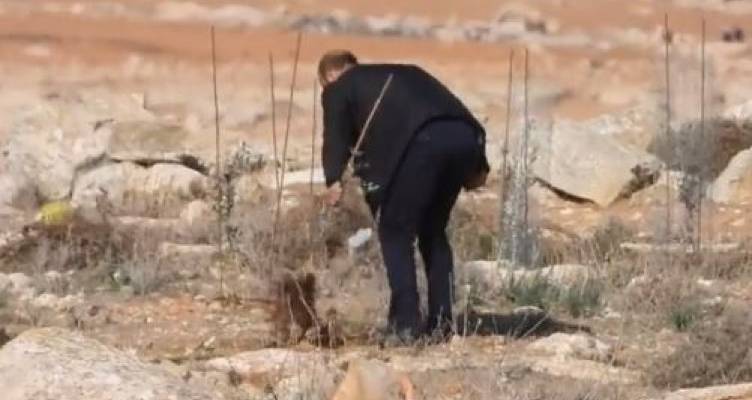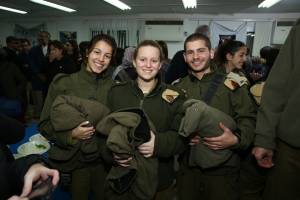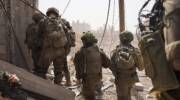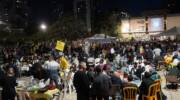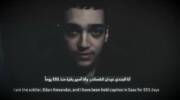In an exclusive interview with United with Israel, a Palestinian Arab who was vandalizing state land in the Judea and Samaria region admitted that he was being paid for harassing Jewish communities.
By Sheri Oz, Special to United with Israel
Last week, a video was released showing Arabs angrily pulling up young olive trees next to the Jewish community of Avigayil in Judea.
It was unique as it was one of the few instances of Palestinian Arab harassment against Jews that was caught on film.
פלסטינים עוקרים עצי זית ששתלו תושבי היישוב אביגיל. באור יום, מול המצלמות ובפנים גלויות. הם יודעים שלא יעשו להם כלום pic.twitter.com/gM2cT5NR6i
— יהונתן גוטליב Yonatan Gottlieb (@yonatanGottlieb) December 15, 2021
The video shows what Jewish residents of Judea and Samaria have been trying to tell the rest of the country regarding daily occurrences as Palestinian Arabs engage in efforts to exert their dominion over Area C, the region assigned to Israeli control in the Oslo Accords, – with the help of radical left-wing organizations.
Much more familiar than this video are those clips claiming to show settler violence against Arabs in Judea and Samaria.
Such videos have featured in the mainstream news and social media for a long time and have been gathering increasing steam over the past few months.
It is only recently that an increasing number of articles have been published pointing out that a double standard exists whereby “’routine’ terror attacks, including murder by Palestinian Arabs against Jews, are downplayed or treated as justified.
This is, perhaps, because little documentation has reached the public regarding the daily harassment of settlers by Arabs.
A common trick played by the Arabs is to attack or relentlessly badger Jews and then film them in the instances when they fight back, ignoring the times they do not.
Tuesday was not an instance when Jews provided photogenic propaganda for the Arabs. Quite the contrary, in fact. Three Arabs were caught on film pulling up olive tree saplings that had been planted by the community of Avigayil. But this short film clip does not tell the whole story.
Just as media consumers should insist that articles documenting Jewish attacks on Arabs put the entire incident in context, telling the story from beginning to end, we should expect no less when it is an Arab attack on Jews.
With the entire story told, readers can assess for themselves what truly happened and not simply accept the spin provided by the particular outlet uploading the so-called evidence of violence.
United with Israel (UWI) spoke with Yehuda Bazak, a resident of Avigayil, who witnessed the entire incident that was recorded on video last Tuesday.
UWI: Please tell us how you came to witness the events last Tuesday.
Bazak: That morning my wife went off to work and I stayed at home with our baby. I went out with him for a walk because he was fussy. Then I saw in the distance that something was happening.
I go out for walks often, just to experience the desert, to hike. I feel safe going for walks in the hills surrounding Avigayil. My wife and I go for walks with the kids. It is perfectly safe. Avigayil does not have a border fence around it.
I don’t go to places where I know there may be danger. About a three-to-four-kilometer circumference around Avigayil is safe for walking. I go into valleys, wander around. Many people do this. So I walked.
What I saw was someone tilling the land. The Arabs know that it is [Israeli] state land. There is no doubt about that.
UWI: Do you know the man who was working the land?
Bazak: Yes, it was Mohammad Hamamdi.
UWI: You mean the Hamamdi from el-Mufaqara who has been featured on anti-Israeli propaganda social media sites over the past few months? There was a huge demonstration after the violence there on Simchat Torah and a big show was made of bringing water to his family. Is that the one?
Bazak: Yes.
UWI: OK. You saw Hamamdi tilling on state land. What happened next?
Bazak: I walked towards him. The Civil Administration inspector had already arrived. The inspector told Hamamdi to leave and he refused, continuing to cultivate the soil. The inspector told him he would take his tractor. When they threatened to take his tractor, Hamamdi said that he would come the next day with a mule and continue to work the land.
Hamamdi kept the argument going, taking his time in order to give his friends a chance to arrive. Within moments we saw fancy jeeps coming up from the desert; a few Europeans came right away, two Israeli Jewish leftists who live in the nearby town of a-Tawani and are present at every incident. [NOTE: UWI has seen videotapes documenting this.]
There were about seven soldiers and a number of police. As the shouting was going on, some Arabs who don’t live here came and moved higher up the hill to where our olive trees were. The whole incident involved a lot of shouting and the uprooting of the trees. There was no physical violence at all.
Finally, Hamamdi and his friends left. So far, they have not been back to work the soil in that particular spot.
UWI: Is there anything unique about this incident?
Bazak: Not really. This kind of thing happens all the time. They cultivate a piece of state land when nobody is watching. If undisturbed, they continue. They erect new buildings. If one happens to be taken down, they put it up again. They will come and throw out an old sofa one day, a few dirty old rugs another day, then gradually build a hut, put up a fence, dig a well, and claim another piece of state land.
So, what do I do as a private citizen when all around things are closing in on us? Every day they are building, one building after another. It is faith that keeps me going. I ask myself what I can do that is not against the law?
UWI: What can you do?
Bazak: In Avigayil, we respect private land. We do not build on private land. There was even the question whether our playground was set up on private land, so we moved it to land we knew was not owned by any individual.
On state land, people cannot build or cultivate land wherever they want. You have to get permits to do that. Even shepherds, Jewish and Arab, have leases of specific plots of land where they can let their animals graze.
We are making an attempt to protect the land around us amid the chaos. With that in mind, we try to do things that are not extreme. We come with maps; the maps are not secret. We do things in an attempt to protect state land. If the Arabs try to cultivate state land, we will come and take videos and photos.
The Arabs do not accept the concept of state land. From their perspective, everything is theirs. I feel like we are the sheep and the Arabs are the wolves, preying on every piece of land that there is here.
We planted olive trees on state land next to Avigayil as part of our goal of protecting the land. I see around us that the Arabs have been putting up new structures day after day, and the state does nothing about it. On the other hand, we know that the land where we planted trees is state land, and planting trees does not turn the land into OUR land. It remains state land. If we plant here, then it keeps the Arabs from coming and cultivating the land or building on it.
UWI: What are your relations like with the Arabs of el-Mufaqara?
Bazak: Relations with the Arabs are dynamic and change all the time. The general atmosphere changed dramatically following the violent Simchat Torah incident. But even now, some of the friendships among some Jews in Avigayil and Arabs in el-Mufaqara remain strong.
In fact, when the inspector said he would take the tractor away and store it in a Jewish settlement, Hamamdi asked that it be taken to Avigayil, saying that in Avigayil the people are good.
UWI: What can you tell us about Mohammad Hamamdi?
Bazak: I talk with Hamamdi a lot. He likes to talk. I can talk with him for hours.
He told me that he is a politician. He leads the incitement. I don’t know if it started with him or if they found him. An Arab laborer who was working in Avigayil told me that most of the Arabs living in the Avigayil region also have homes in the town of Yatta and they get money for living here. In fact, I have a tape of Hamamdi saying that he is there because he gets money for being there.
In the video, we can hear Hamamdi say: “Don’t worry, someone pays me for this.” Bazak says he knows that his leftist friends pay for this. And Hamamdi repeats that he is getting paid. Hamamdi agrees. Then Bazak repeats what was said: “Here we have it. Hamamdi clearly says that there is someone who is paying for this.”
UWI: What is it like for you living here?
Bazak: I am happy here. Personally, I do not get involved in politics and I have no social media. I live a private life and a life of faith.
Avigayil is still not officially recognized, but the state was involved in the establishment of our community because it is interested in preventing the takeover of land by the Arabs. The story is complicated, however, when we get the message continually that the government does not care about us, allowing the Arabs to do what they would never let the Jews do.
The army does not seem to act from a sense that this is our land, and we need to protect it. When there is an incident, they come to quiet things down again.
We try to operate delicately, obeying the law and, most of all, living the faith that this is where we are supposed to be.
Bring Joy to Israeli Soldiers - Send Winter Care Packages!
We are honored to thank the young men and women of the IDF who risk their lives every day to defend the citizens of Israel.
Join us in sending winter care packages and personal notes of support to Israeli soldiers who are out in the cold all day.
Warm up a soldier's heart with essential winter wear including fleece jackets, hats, gloves and more. Keep an entire unit warm!
THE SOLDIERS REALLY APPRECIATE YOUR LOVE AND CONCERN!
Click Here to Send Your Gift and Personal Note to Israeli Soldiers
Do You Love Israel? Make a Donation - Show Your Support!
Donate to vital charities that help protect Israeli citizens and inspire millions around the world to support Israel too!
Now more than ever, Israel needs your help to fight and win the war -- including on the battlefield of public opinion.
Antisemitism, anti-Israel bias and boycotts are out of control. Israel's enemies are inciting terror and violence against innocent Israelis and Jews around the world. Help us fight back!
